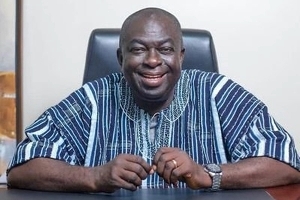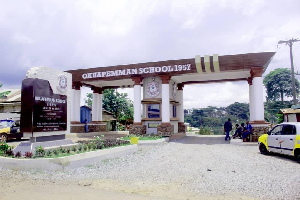General News of Thursday, 27 May 1999
Source: --
Yamson says strikes should be avoided
Accra (Greater Accra) 27 May '99
Mr Ishmael Yamson, Chairman of Unilever Ghana Limited, on Wednesday said strikes and threats of strikes should be avoided saying they destabilise the macro-economic environment.
He said when workers' agitation for better conditions of service is dragged into another election year it could spell the doom of the economic environment as happened in 1992.
Speaking at the Annual General Meeting of Unilever Ghana Limited, Mr Yamson said the issue therefore "needs to be tackled firmly and should be managed judiciously, and now."
He said by the end of April 1999, there had been a significant improvement in the control of inflation which had dropped to 10.2 per cent as against 15.7 per cent at the close of 1998 and described it as "quite encouraging."
These developments, coupled with the government's commitment to improve the macro-economic environment, "are strong signals which investors are taking notice of."
He cautioned, however, that the next five years require a strong political will and focus on the current initiatives to sustain improvement in the economy.
Mr Yamson said the fundamentals of the economy are still weak pointing out that the fiscal deficit at 6.3 per cent of Gross Domestic Product (GDP) is high and unsustainable.
"The domestic debt is high and interest charges on it are high and is currently the second biggest government expenditure item."
Mr Yamson said with trade terms of Ghana's two main export commodities - gold and cocoa - at their weakest, it would require strong internal revenue collection and inflows of official aid and private capital to finance the budget.
Mr Yamson said export earnings are low and volatile and called for the diversification of export commodities, including non-traditional exports.
"We must define clear policy initiatives to encourage and aggressively grow value-added exports.
"This will require making Ghana a low cost production country, improving infrastructure and competitiveness than neighbouring countries, removing the bureaucracy in the public sector, sustaining a regime of low inflation and low interest rate, refining our labour laws and removing the current rigidities."
Mr Yamson said the country needs to rethink its agriculture and education policies. Ghana's labour is becoming increasingly unskilled and expensive and "our tertiary education is in shambles" with the quality of graduates coming out being poor. He said "the root cause is from the poor foundation at the JSS level."
Mr Yamson said Ghana needs a well educated and skilled labour to compete in the global market and achieve set targets.
He said Unilever Ghana would invest 26 billion cedis over the next two years to improve technology and expand capacity.
In 1998, the company invested 10 billion cedis in the business and an additional 15 billion cedis to acquire the National Oil Palm Plantation (NOPP).
He said the company spent over 550 million cedis on social initiatives and paid 43 billion cedis in duties.
On the company's performance, he said turn-over went up from 227.687 billion cedis in 1997 to 248.545 billion cedis in 1998.
Profit before tax was down from 21.841 billion cedis in 1997 to 20.023 billion cedis in 1998 while profit transferred to income surplus account was down from 16.370 billion cedis to 13.091 billion cedis.
Dividend proposed or paid was up at 10.813 billion cedis from nine billion cedis in 1997.












